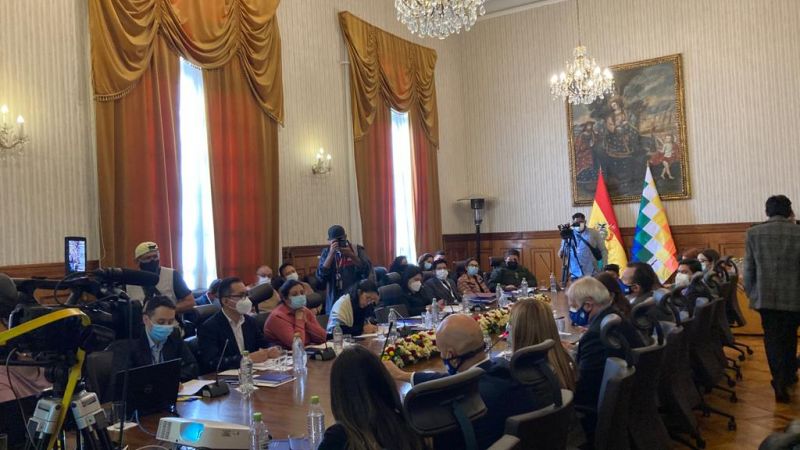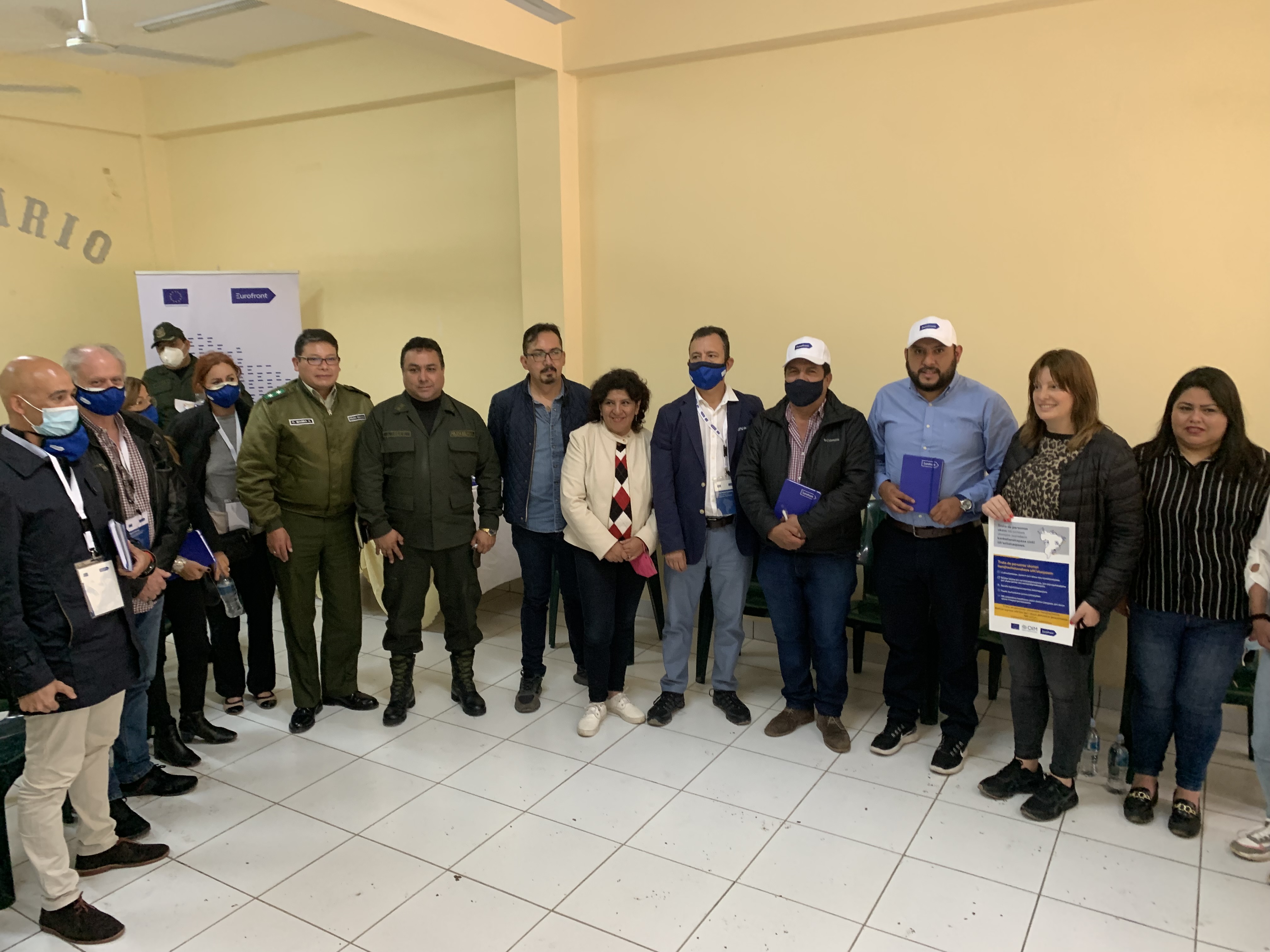News
From 15 to 19 November, a team of EUROFRONT border and anti-trafficking experts visited Bolivia. Various authorities from the Foreign Ministry, the Interior Ministry, the Directorate of Migration, the Bolivian Police and the Ministry of Justice, among others, confirmed their commitment to cooperate in order to improve development and security in Latin America. Bermejo-Aguas Blancas, the border between Bolivia and Argentina, was one of the main workplaces during the week.

The meetings began in La Paz, with a session led by Eva Chuquimiai, the Bolivian Vice-Minister of Institutional and Consular Management. The focus then shifted to Bermejo, where the team visited the border post and met local representatives and border agents. From Bermejo, Roberto Ríos, the Bolivian Vice-Minister of Public Security, reaffirmed the Interior Ministry’s commitment: “EUROFRONT will allow us to exchange know-how and good practices, as well as to develop other instruments and tools to improve our migration policy and the fight against human trafficking.”
Comprehensive border management and the fight against the trafficking and smuggling of migrants are the two main aims of EUROFRONT, a programme led by FIIAPP (the International and Ibero-American Foundation for Administration and Public Policies) together with IILA (International Italian-Latin American Organisation) and IOM (International Organization for Migration).
Border management during the health crisis
During the visit, Cecilia Aróstegui, director of Consular Affairs, recalled that in Bolivia there have been social and organisational conflicts that require the country to analyse how Comprehensive Border Management should be implemented: “We have to start talking about the border considering it as an ‘area’ and not a ‘line’,” said Aróstegui.
The mission also coincided with the closure and opening of borders as a result of the Coronavirus health crisis. Within this context, Katherine Calderón, General Director of Migration, had the following to say: “Despite the closure of borders, there is a high volume of vulnerable population moving between them. To put an end to this irregular movement of people, joint work between countries is essential to ensure safe, orderly and effective migration.” For Calderón, collaborating with EUROFRONT means “starting to address these issues by promoting inter-agency coordination spaces and helping to unify criteria and create joint protocols.”
Conclusions to be drawn from this technical visit
The information collected during these days has made it possible to learn about the work that has been undertaken by Bolivia on the Bermejo-Aguas Blancas border. This diagnosis will be completed by Juan Manuel del Valle, a member of the Spanish National Police force and the medium-term expert assigned to the Bermejo-Aguas Blancas border. Based on the strengths and weaknesses detected at the border and in conjunction with local authorities, his work will make it possible to define a plan for the development of EUROFRONT’s strategic lines in the coming months.

After the visit, Giovani Salguero, Head of the Consular Assistance and Protection Unit at the Bolivian Ministry of Foreign Affairs, offered this summary: “The joint work carried out this week has shown once again that the sum of efforts between national institutions and initiatives such as EUROFRONT strengthen us as a country and as a society, with our sights set every day on building a safer South American region.”
José Antonio Cambronero and Laura Estomba, coordinators of the programme, highlighted the excellent receptivity shown by the representatives of the Bolivian government and the willingness to design a 2021-2022 work plan.
Line of action
Social media news

